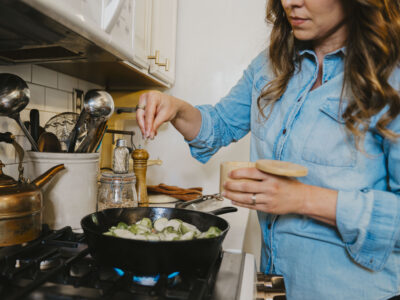Learn about the three most common mistakes when embarking on your homesteading journey, even if you are a first-time homesteader. And learn a few tips to keep your focus where it will have the best impact.
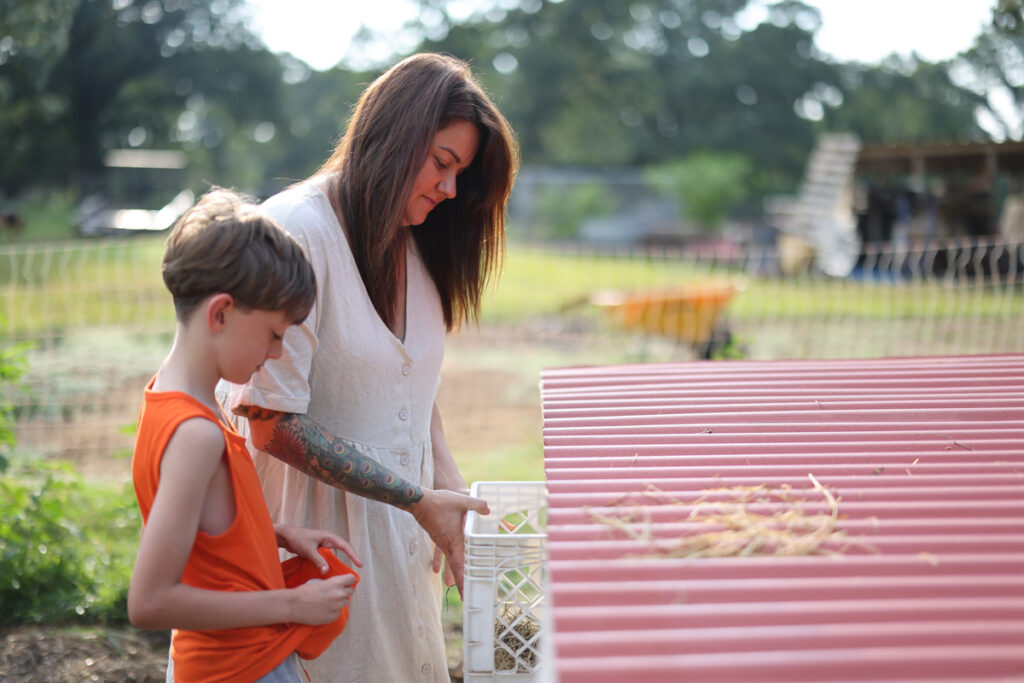
I’m talking with Jessica Sowards, author of The First Time Homesteader, about the homesteading mistakes we’ve both made over the years. We also discuss the lessons we’ve learned from homesteading for the first time.
Welcome to the Pioneering Today Podcast episode #362 with Jessica Sowards (aka Jess) from Roots & Refuge as we discuss the homesteading mistakes we’ve made over the years. We’ll also discuss the huge lessons learned from those mistakes and Jess will share her experience as an experienced homesteader starting from scratch on a brand new homestead with bare land.
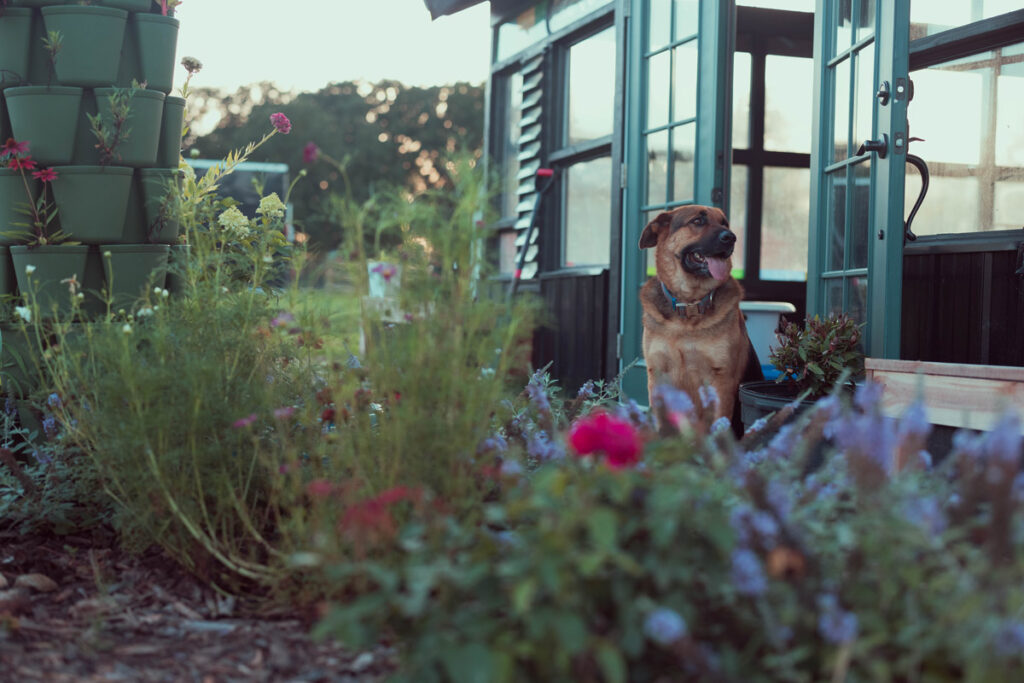
This is an addition to the podcast series I’ve been doing on the essential skillsets homesteaders need. You may also want to listen to my Homesteading Myths and Tips for Success podcast. But today’s episode lends a different perspective on common mistakes to avoid.
Jess is an avid homesteader and mother, and her husband, Jeremiah (or Miah), is her homesteading partner.
She and her family recently moved from their small homestead in Arkansas to a large plot of bare land in South Carolina. On their YouTube channel and website (links below), they share their new homesteading journey of turning their bare land into a functioning and productive homestead.
For those who don’t already know, September has been deemed national preparedness month. Check out my 30-day Preparedness Resource Page for more helpful resources.
Azure Standard
This podcast is sponsored by Azure Standard, a great place to build up your bulk supplies and long-term food storage.
Azure has a special promotion for first-time customers through October 30th, 2022. When you purchase $50 or more, you can get 10% off your order with my coupon code “MKN10”.
I have been shopping at Azure for over three years, and I love the variety of items they offer. You can buy items in the same quantity or size as you find at the grocery store, or they also offer items in bulk and by the case.
What I love about Azure Standard is that they partner with small farms across the US that adhere to the same strict standards that I am looking for in my food.
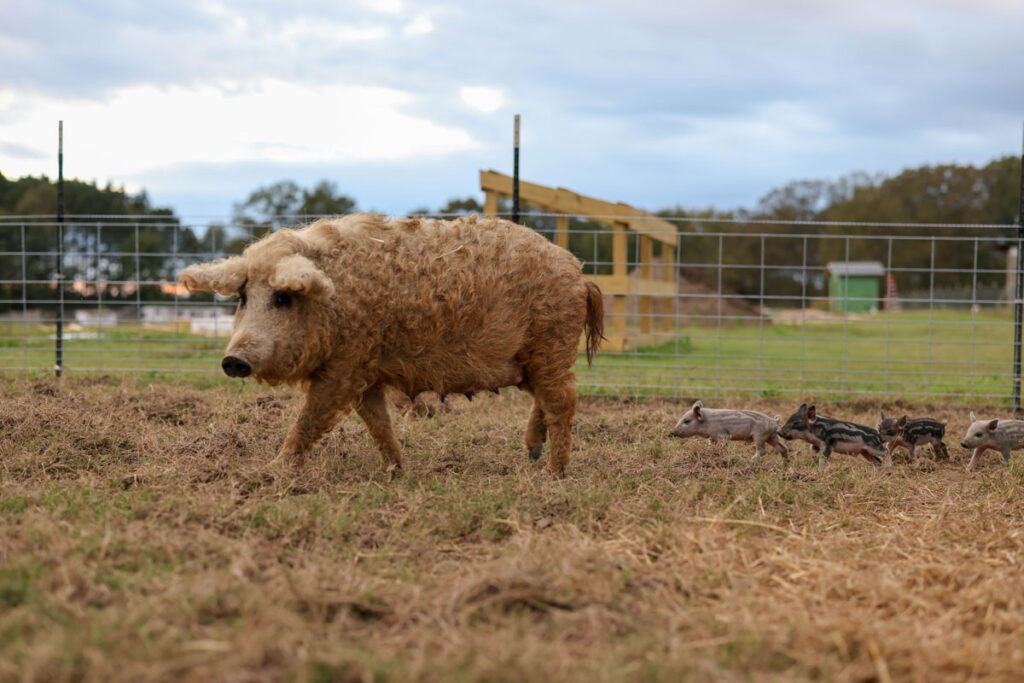
Three Common Homesteading Mistakes to Avoid
Below, you’ll find some of Jess’s best tips on the first-hand homesteading mistakes she has learned. Things like moving too quickly, not investing in good infrastructure in the beginning, and not having a five and ten-year plan.
Don’t Get in a Rush – Go Slow
- Learn one skill at a time – plant a garden, start a dairy farm, raise some backyard chickens, etc. Just don’t do them all at the same time.
- Sometimes expensive initial investments can be cheaper than initial shortcuts.
- Don’t let your spending and growth get ahead of your experience. (More on this below.)
Good Fences are Expensive But Worth It
- Good fences also make great insurance policies.
- Learn the pros and cons of electric fences, electric fence netting, solid perimeter fences, and goat & sheep fences.
- Having good fences eliminates the potential problems of loose animals which might cause accidental breeding or the animals bothering neighbors.
- Learn the different types of fencing. There’s a big difference in fences used for cattle versus horses.
Have a Five & Ten Year Plan
- When you move onto a new homestead property, wait several months before creating a concrete plan. After you’ve lived there for a while, it will be easier to map out a five and ten-year plan.
- Make your plans without basing them foremost on what you can afford – plan beyond your budget.
- Base your homesteading on your plan first, not on what you can do next.
- Learn about the soil on your property. Know the ideal places for a garden, fruit trees, animals, etc. You don’t want to build a barn on your best garden plot.
I always say, hold onto the excitement, but don’t let it override wisdom in your actions. This is what I call vision versus practicality.
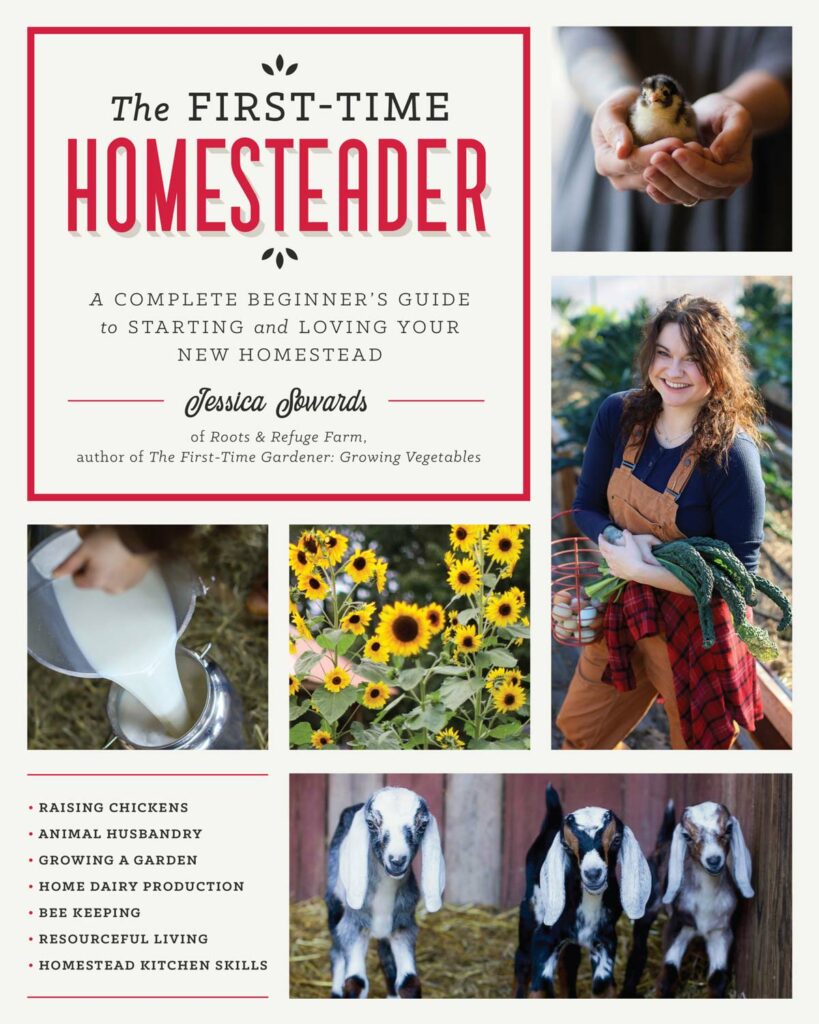
Where to Find Jess
Jess has a lot of exciting new projects coming up!
- Be sure to go order her new book, The First Time Homesteader.
- Carolina Homestead Exchange – This is a new storefront that will be opening in South Carolina soon in collaboration with McMurray Hatchery.
- Next to the Caroline Homestead Exchange will be a coffee shop with roasted coffee for sale (coffee will be available online as well!).
- Roots & Refuge Website
- YouTube
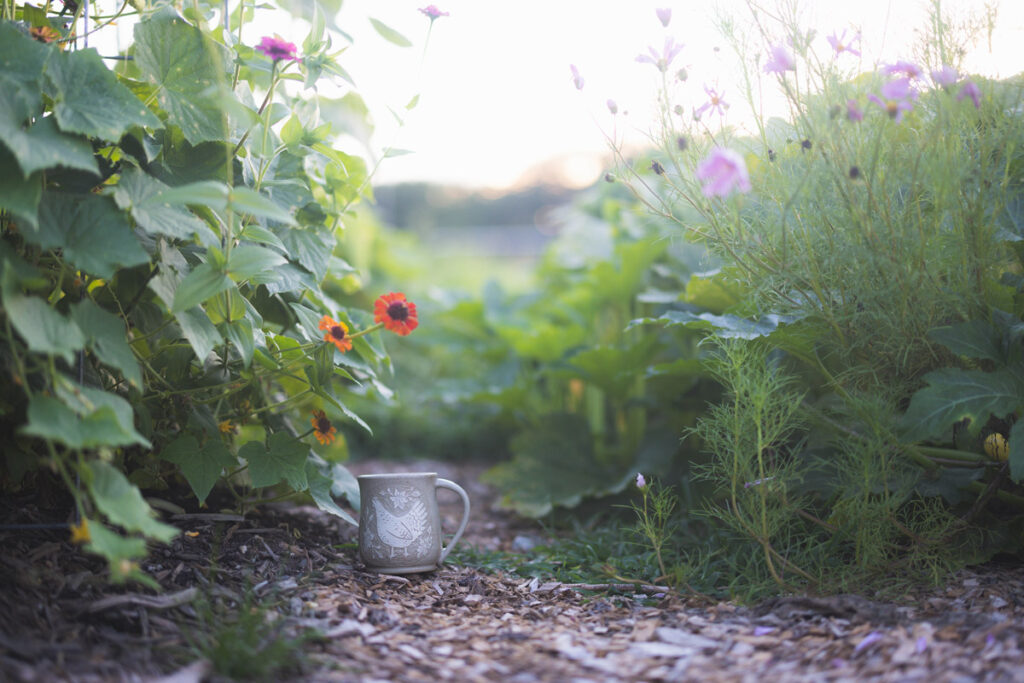
More Posts You May Enjoy
- Unplugging for One Year with Rory Feek
- 17 Self Sufficiency Tips from the Great Depression
- 10 Things Our Grandparents Reused During the Great Depression
- 6 Things Our Great-Grandparents Did Better Than Us
- Time & Budget Saving Tips from the Great Depression
- 5 Life Lessons from the Great-Depression
- How to Find & Buy Land Beyond the Usual Routes
- Great Depression Era Money Saving Tips w/ Potatoes
- 7 Depression Era Tips to Stretch Your Food Budget
- 8 Depression Era Tips to Save Money Now
- Time Management Skills for the Homestead
[fusebox_transcript]
